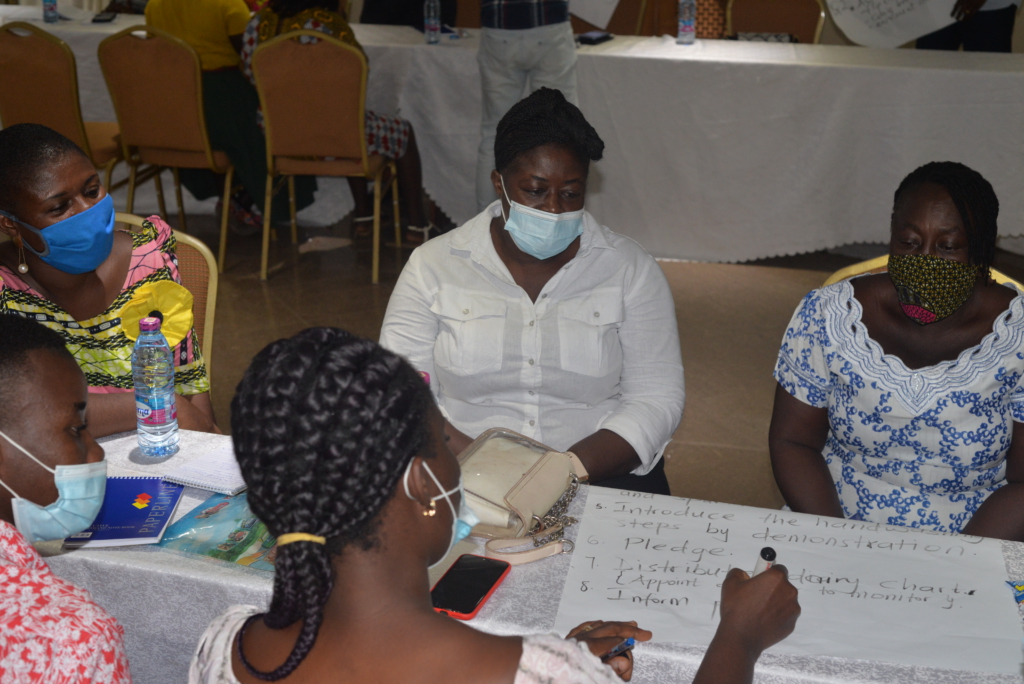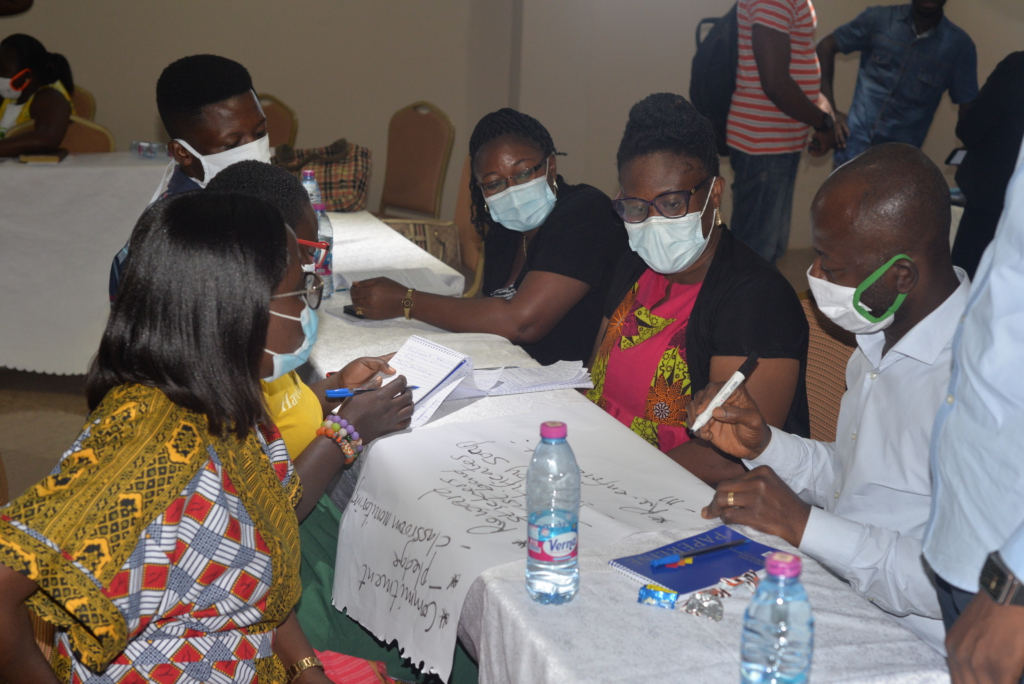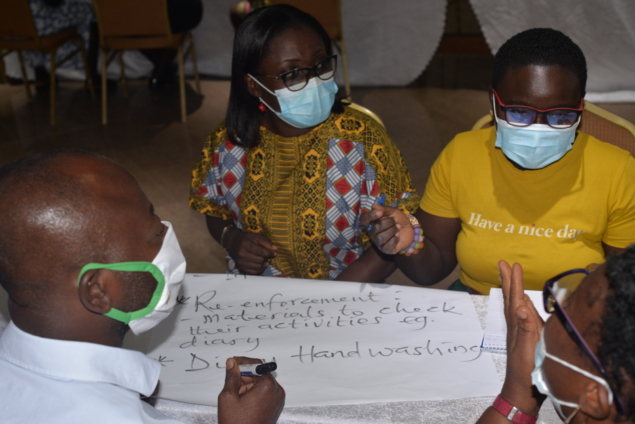Stakeholders of the Water and Sanitation for the Urban Poor’s project ‘Building urban resilience against Covid 19’ have benefitted from a 4-day capacity building workshop in Kumasi, Accra and Tamale.
Beneficiary stakeholders include School Hygiene and Education Programe (SHEP) coordinators, National Commission for Civic Education (NCCE) officials, market leaders, assembly members, environmental health officers and Community Based Organisations.
They were equipped with knowledge, skills and approaches in hygiene behaviour change approaches as well as general COVID-19, hygiene education and community engagement skills.
Participants engaged in plenary session to discuss effective ways to propagate the hygiene education messages, factors that motivate behaviour change and target practices. They were also trained on the Uniliver School of 5 Hygiene and Behavioural Change Approach and the Lifebuoy Mums Magic Hands Concept and its pillars for behavioural change which are awareness, commitment, reinforcement and reward.
The approach was to help the participants educate people to wash their hands with soap consistently at key occasions and actions to ensure families, especially children, wash their hands with soap consistently at key occasions in order to help reduce diarrhea related diseases.


Municipal director, NCCE Oforikrom, Vera Ofei believes the workshop has helped in improving her communication skills.
“NCCE is on the platform of education. We want to see behavioral change. This workshop has helped me acquire effective communication skills,” he said.
Oforikrom SHEP coordinator Millicent Annorbah-Sarpei said “the programme has come to help us practice good hygiene in schools and communities.”
Nana Esi Owusu Ansah of the Obuasi Central market queen was confident the wearing of nose masks is an effective method of curbing the spread of covid-19 in the market setting. She said “proper communication is crucial in education of her subjects.”
District environmental officer, Obuasi East, James Gamor has identified a change in his approach.
“What we’ve come to learn here will help us to improve what we’ve already been doing on the field. We’ve realized we need to change some of our strategies to prevent the new cases,” he said.
Stakeholders in Tamale and Accra also benefitted from the 4-day workshop to equip them undertake the same hygiene and its related COVID-19 messages.
The programme is supported by the Unilever and the UK government. WSUP in October organized an education campaign for traders, schools and the general public in some Assemblies in Greater Kumasi Metropolitan Area and Tamale to increase awareness and understanding about the importance of handwashing with soap as an effective and affordable way to prevent diseases and save lives.
Latest Stories
-
Paris 2024: Opening ceremony showcases grandiose celebration of French culture and diversity
3 hours -
How decline of Indian vultures led to 500,000 human deaths
4 hours -
Paris 2024: Ghana rocks ‘fabulous fugu’ at olympics opening ceremony
4 hours -
Trust Hospital faces financial strain with rising debt levels – Auditor-General’s report
5 hours -
Electrochem lease: Allocate portions of land to Songor people – Resident demand
5 hours -
82 widows receive financial aid from Chayil Foundation
5 hours -
The silent struggles: Female journalists grapple with Ghana’s high cost of living
5 hours -
BoG yet to make any payment to Service Ghana Auto Group
5 hours -
‘Crushed Young’: The Multimedia Group, JL Properties surprise accident victim’s family with fully-furnished apartment
6 hours -
Asante Kotoko needs structure that would outlive any administration – Opoku Nti
6 hours -
JoyNews exposé on Customs officials demanding bribes airs on July 29
7 hours -
JoyNews Impact Maker Awardee ships first consignment of honey from Kwahu Afram Plains
8 hours -
Joint committee under fire over report on salt mining lease granted Electrochem
8 hours -
Life Lounge with Edem Knight-Tay: Don’t be beaten the third time
8 hours -
Pro-NPP group launched to help ‘Break the 8’
8 hours

